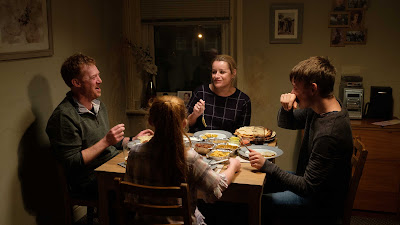Hoping that self-employment through gig economy can solve their financial woes, a hard-up UK delivery driver and his wife struggling to raise a family end up trapped in the vicious circle of this modern-day form of labour exploitation.
Directed by Ken Loach, and with a screenplay written by Paul Laverty, Sorry We Missed You manages to expose the dystopian working conditions of the modern-day world without the need to insert exaggerated or fantasy elements. A film with an overwhelming moralistic ulterior motive, Loach manages to do so without appearing patronizing.
The story of a family that was surviving well on a single wage and about to buy a house of their own, suddenly finding their plans disrupted by a global recession leaving the father Ricky (played by Kris Hitchen) unemployed, to which point, ten years later, both parents have been forced to take up jobs in the gig economy, working 12+ hours a day, fighting to clear debts and a chance at owning a home, risking homelessness.
A bleak feature film, that has little in the way of a narrative direction, Sorry We Missed You works as a character study, as we observe the effects of gig economy jobs on the family dynamics. An incredibly impactful performance from all actors involved. The relatability of the expectations of low-paying jobs, being employed as an independent contractor, with no contract, no benefits, no days off, and steep financial penalties if targets are not met.
The set designs are well-balanced and the cinematography lacks any flashy stylistic direction, all feeding into the theme of lower-working-class poverty; the cheap furniture, the minimal lighting, the damp aesthetics, and the family photos posted along the walls; no signs of anything resembling art deco.
Sorry We Missed You is another film that I don't want to go into too much detail about, as I don't want to take away the impact that the movie has. This isn't a formulaic piece, and the third act doesn't go in the direction that you expect it to go. There is no payoff at the end, no satisfaction, but the story hasn't ended, and--with the state of capitalism--it likely never will. Sorry We Missed You is a reminder of the humanity of the workers of the gig economy. Next time your package arrives late, maybe have a little sympathy for the driver.




